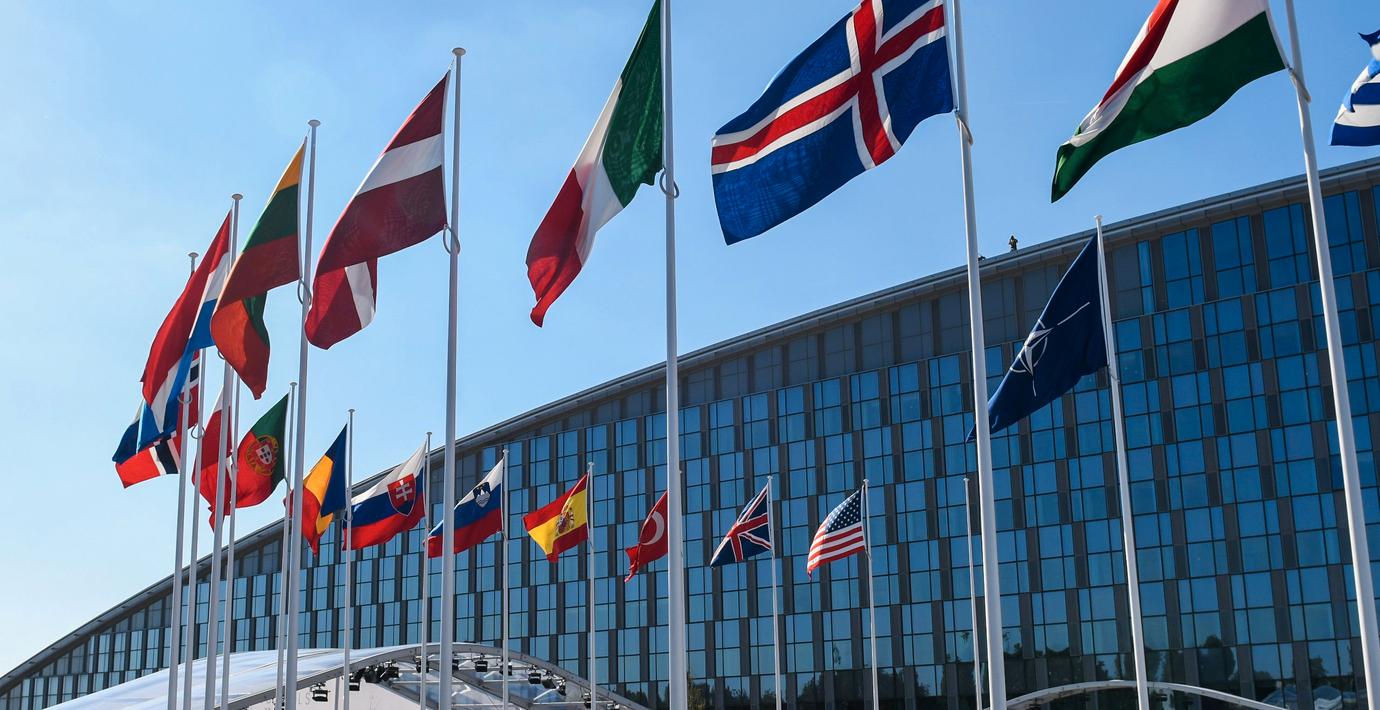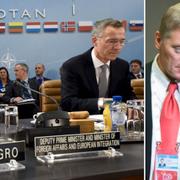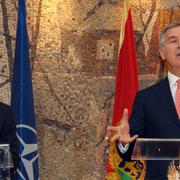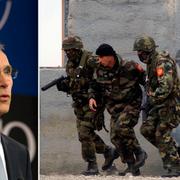
Montenegro blir Natos 29:e medlemsland
Montenegro har officiellt blivit medlem av Nato, rapporterar AFP. Landets utrikesminister Srdjan Darmanovic lämnade in pappren vid en ceremoni på det amerikanska utrikesdepartementet, skriver nyhetsbyrån. Det innebär att landet blir den 29:e medlemmen i försvarsalliansen.
bakgrund
NATO
Wikipedia (en)
The North Atlantic Treaty Organization (NATO /ˈneɪtoʊ/; French: Organisation du Traité de l'Atlantique Nord; OTAN), also called the North Atlantic Alliance, is an intergovernmental military alliance between several North American and European states based on the North Atlantic Treaty that was signed on 4 April 1949.
NATO constitutes a system of collective defence whereby its member states agree to mutual defense in response to an attack by any external party. Three NATO members (the United States, France and the United Kingdom) are permanent members of the United Nations Security Council with the power to veto and are officially nuclear-weapon states. NATO Headquarters are located in Haren, Brussels, Belgium, while the headquarters of Allied Command Operations is near Mons, Belgium.
NATO is an alliance that consists of 29 independent member countries across North America and Europe. An additional 21 countries participate in NATO's Partnership for Peace program, with 15 other countries involved in institutionalized dialogue programs. The combined military spending of all NATO members constitutes over 70% of the global total. Members' defense spending is supposed to amount to at least 2% of GDP.
NATO was little more than a political association until the Korean War galvanized the organization's member states, and an integrated military structure was built up under the direction of two US Supreme Commanders. The course of the Cold War led to a rivalry with nations of the Warsaw Pact, that formed in 1955. Doubts over the strength of the relationship between the European states and the United States ebbed and flowed, along with doubts over the credibility of the NATO defense against a prospective Soviet invasion—doubts that led to the development of the independent French nuclear deterrent and the withdrawal of France from NATO's military structure in 1966 for 30 years. After the fall of the Berlin Wall in Germany in 1989, the organization became involved in the breakup of Yugoslavia, and conducted its first military interventions in Bosnia from 1992 to 1995 and later Yugoslavia in 1999. Politically, the organization sought better relations with former Warsaw Pact countries, several of which joined the alliance in 1999 and 2004.
Article 5 of the North Atlantic treaty, requiring member states to come to the aid of any member state subject to an armed attack, was invoked for the first and only time after the September 11 attacks, after which troops were deployed to Afghanistan under the NATO-led ISAF. The organization has operated a range of additional roles since then, including sending trainers to Iraq, assisting in counter-piracy operations and in 2011 enforcing a no-fly zone over Libya in accordance with U.N. Security Council Resolution 1973. The less potent Article 4, which merely invokes consultation among NATO members, has been invoked five times: by Turkey in 2003 over the Iraq War; twice in 2012 by Turkey over the Syrian Civil War, after the downing of an unarmed Turkish F-4 reconnaissance jet, and after a mortar was fired at Turkey from Syria; in 2014 by Poland, following the Russian intervention in Crimea; and again by Turkey in 2015 after threats by Islamic State of Iraq and the Levant to its territorial integrity.
Omni är politiskt obundna och oberoende. Vi strävar efter att ge fler perspektiv på nyheterna. Har du frågor eller synpunkter kring vår rapportering? Kontakta redaktionen


